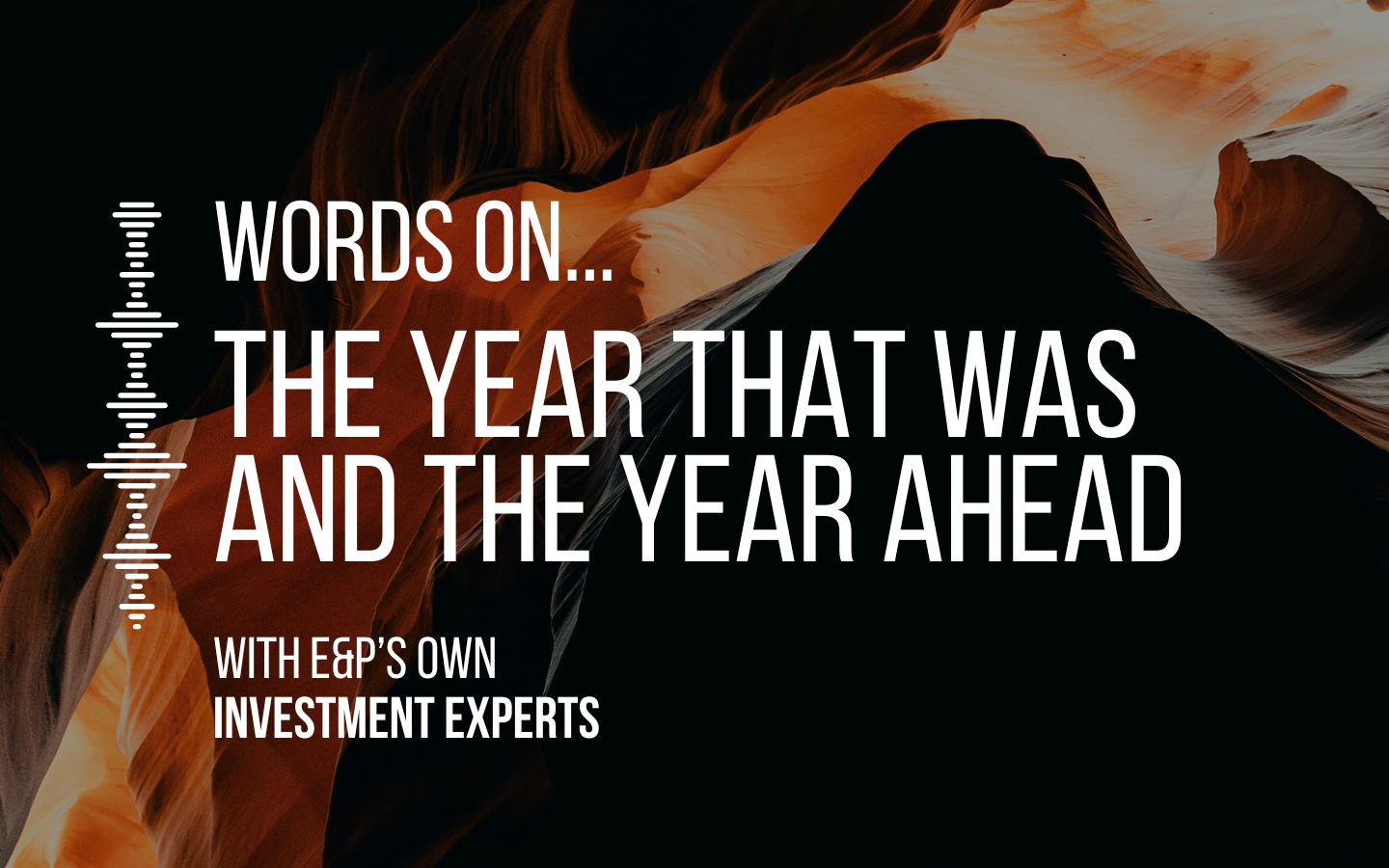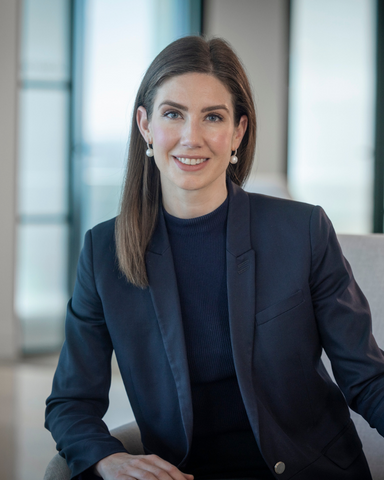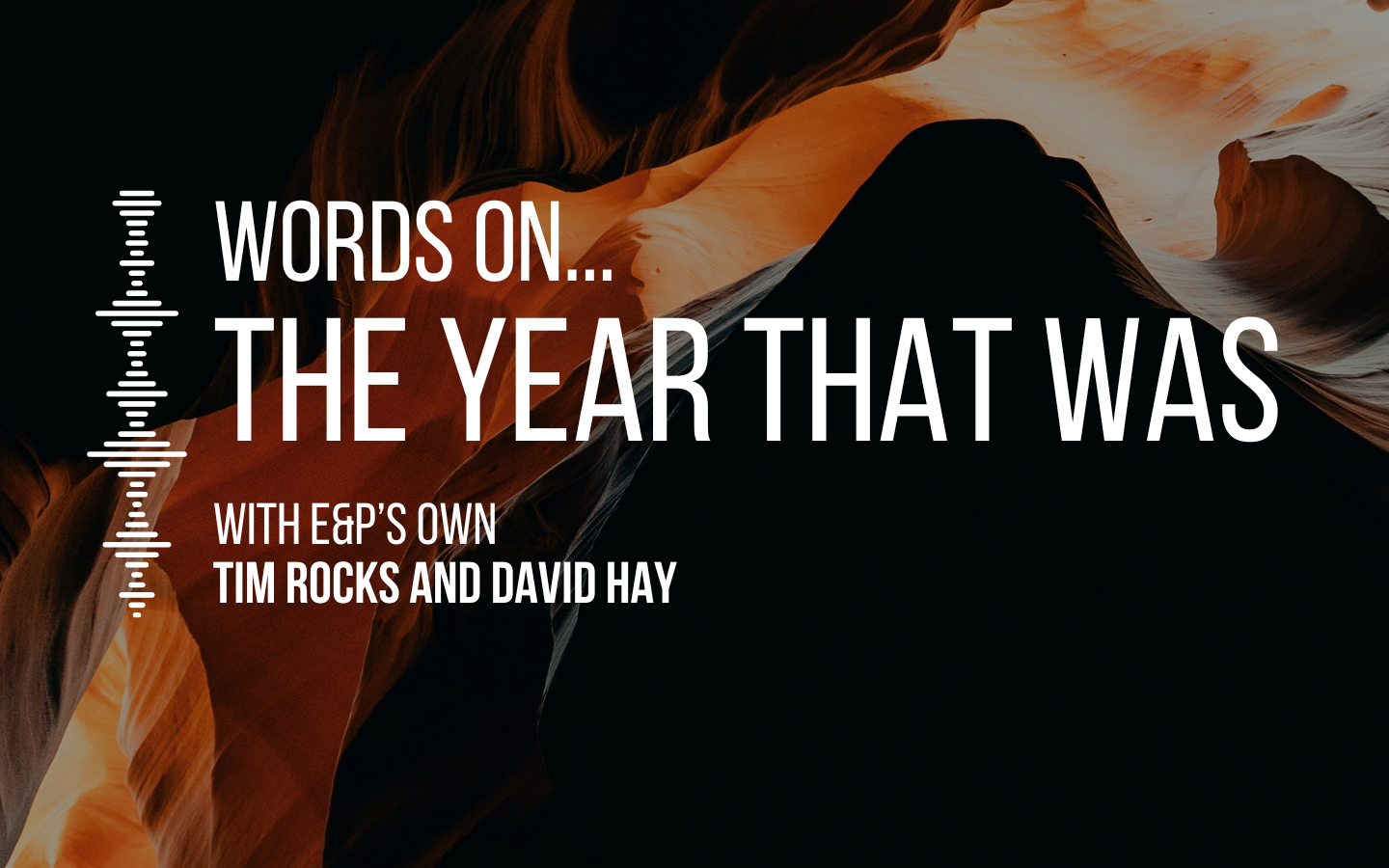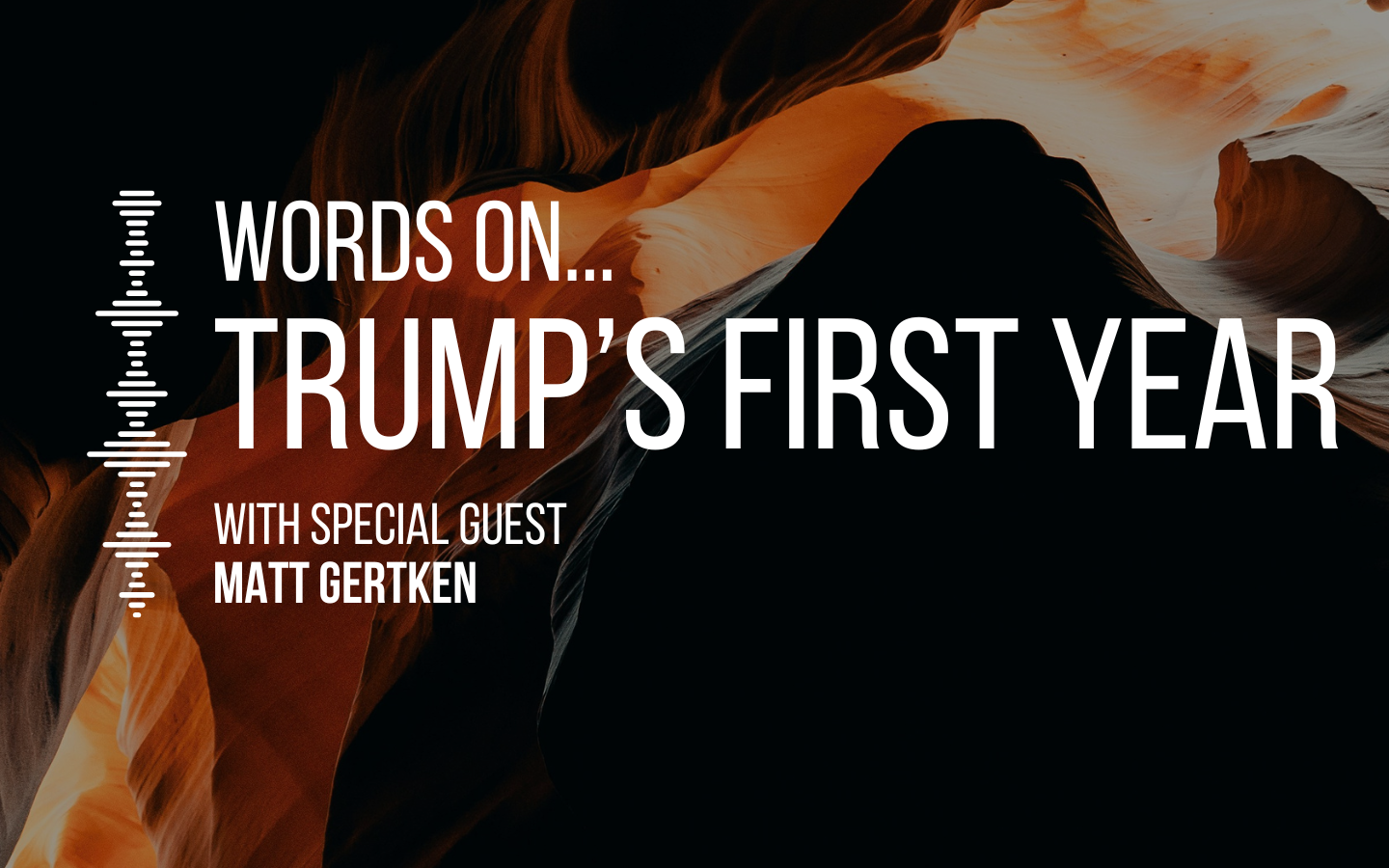


In this episode of Words on Wealth, Lucy Meagher speaks with Denise Cheng from Equity Trustees about how Australian families are incorporating philanthropy considerations into their financial plan. Lucy and Denise discuss how individuals, families, and corporations are approaching structured giving, the motivations behind generosity, and the impact of bringing structure to giving versus one-off donations. The conversation also highlights the recently launched Evans & Partners Foundation and explores how thoughtful philanthropy can create meaningful, lasting outcomes. Tune in to find out more.
This episode is also available on Apple Podcast.
Disclaimer
This podcast was prepared by Evans and Partners Pty Limited AFSL 318075.
Any advice is general advice only and was prepared without taking into account your objectives, financial situation or needs. Before acting on any advice, you should consider whether the advice is appropriate to you. Seeking professional personal advice is always highly recommended. Where this presentation refers to a particular financial product, you should obtain a copy of the relevant PDS, TMD or offer document before making any investment decisions. Past performance is not a reliable indicator of future performance.
Directors, employees and officers of Evans and Partners and its related bodies corporate may have holdings in the securities discussed. Any taxation information is general and should only be used as a guide.
This communication is not intended to be a research report (as defined in ASIC Regulatory Guides 79 and 264). Any express or implicit opinion or recommendation about a named or readily identifiable investment product is merely a restatement, summary or extract of another research report that has already been broadly distributed.
Lucy Meagher
Welcome to the Words on Wealth podcast. My name is Lucy Meagher and I’m a Senior Investment Advisor at Evans & Partners. Today we have a very interesting conversation ahead. I was very pleased to be joined by Denise Cheng. And Denise is part of the philanthropy team at Equity Trustees. So she’s very well placed to have a conversation and provide insights around the philanthropy sector in Australia. So Denise has been supporting individuals, families and corporations embarking on their philanthropic journey and Equity Trustees has been pivotal in helping ⁓ establish the E &P Foundation, which was recently launched, which we’re very excited about. So equity trustees, they work with sector partners to really amplify a culture of philanthropy across the country. So we had a really interesting conversation around the state of affairs in philanthropy in Australia at the moment, how Denise would define philanthropy and observations and trends that she’s seeing in terms of what motivates certain people to give and look at structured giving as an alternative to direct donations. Denise and I spoke about some of the differences between charity and donations and a more structured approach to philanthropy and also really unpacked a lot of the motivations that she perceives, why people might think about bringing more structure around their philanthropy and the impact that can be achieved with that over time. So we hope you enjoy the conversation.
Lucy Meagher
Well, thanks very much for joining me today, Denise. It’s great to have you here.
Denise Cheng
Thanks for having me.
Lucy Meagher
So I think, you know, importantly around this conversation on philanthropy, it’s important to set the scene and provide a bit of context of philanthropy in Australia. And, you know, largely that is quite positive. think, you know, Australians are some of the most generous people in the world. And I saw a stat here with close to three in five adults donating each year. So, you we philanthropy plays a very important role in addressing a lot of global challenges and locally as well in terms of health and poverty and the like. you know, where are you seeing those trends and a bit of context around philanthropy in Australia?
Denise
Most definitely, Lucy. I think what’s really exciting to see was that think there was a recent report produced by the ACNC, which is our regulator in this space. And in 2023, 19 billion was donated to the community sector. And that’s incredible number, like that’s huge. ⁓ But as you said, it’s only the tip of the iceberg of what actually the sector needs to do the work that it needs to do to create impact and support the flora and the fauna and the humans out there that might need a little bit of extra help in this day and age. ⁓ And I think recognizing that we have an opportunity to do more. Philanthropy Australia back in 2021 actually put a call out and a set of vision for our sector to try and double structure giving by 2030 the Australian government have made that same commitment and all of us in the sector are really here to share more about the incredible opportunity in philanthropy, both personally as well as in terms of long-term impact for community. But I think what I love about philanthropy is I think most of the time we think about making a donation and supporting our friends if they’re running a marathon or the city to surf or a Good Friday appeal if you’re from Victoria. ⁓ And that’s what we most think about when we’re talking philanthropy. But philanthropy actually a lot broader than that and to be honest I think I we would consider most people a philanthropist because often we describe philanthropy as being the five T’s so time, talent, treasure, ties and testimony so if you are volunteering your time after work or on the weekend, if you’re doing some skilled volunteering through your workplace, if you are making a donation ⁓ or even sharing your networks with your favorite charities, all of that constitutes philanthropy.
Lucy Meagher
Yeah, I think that’s a really interesting distinction because you say $19 billion. I mean, that’s a very large number. And I think often when I think about it in conversations with clients, that word philanthropy and philanthropists is often reserved for or associated with multi-generational wealth families and transition and that’s you know it’s your name on a plaque above a you know facility ⁓ but the fact that you yeah say philanthropy is a combination of all of those other things and interestingly you know I saw the ATO released data around that how the pool of giving is made up and 33 percent of that is individuals giving you and applying for a tax deduction. So as you said, it’s pledges, it’s supporting a cause that connects with you personally on a given day. So what are reasons that you see why people might move away from that giving directly approach into a more structured giving ⁓ approach to their philanthropy.
Denise Cheng
Definitely. it’s interesting, Lucy, you mentioned the tax and we did some research actually earlier in the year, which demonstrated that tax actually wasn’t the key motivator for people giving. It was actually the connection to their cause, whichever cause that might be. It was actually around that thought of, want to make a difference to my community. And then lastly, it was actually that whole piece around trusting the charity of choice.
Lucy Meagher
might be just worth quickly before we move on just ⁓ reiterating for our audience what that tax impact is, why people associate philanthropy and a tax benefit while it might not be the top priority or motivator. What is that connection?
Denise Cheng
Most definitely. in Australia, we have 25,000 charities, which we call deductible gift recipient status charities. And they’re the charities where if you make a donation, ⁓ if you write out a cheque or make an EFT transaction, then you receive a tax deductible ⁓ receipt which you can then ⁓ provide to your accountant at the end of the tax year and receive an offset against ⁓ your annual tax return. So oftentimes people very much associate making a donation to a charity with a tax deduction because they’re giving to a DGR1 endorsed charity. So lots of those ones and oftentimes they’ll use it as a way to make a difference in community but get a little bit of it, create a tax efficiency as well.
Lucy Meagher
Alright, so not the top motivator?
Denise Cheng
Definitely not.
Lucy Meagher
Your research has shown but that’s something worth considering as well, particularly in the structured giving.
Denise Cheng
Yeah, that’s right and ⁓ yeah we definitely see clients consider that tax component, the tax efficiencies created by ⁓ making a donation to charity, particularly when there’s a windfall event. Maybe a business has been sold, shares have been liquidated, there might be a capital gains trigger, ⁓ maybe an inheritance has been received ⁓ or we’re transitioning into retirement. All of those have obviously a tax impact ⁓ and do come into play when thinking about next steps and philanthropy. But the really interesting thing about structured giving, and that’s effectively ⁓ amplifying impact by putting ⁓ your charitable contribution into a tax-exempt investment vehicle. It’s a trust structure. And effectively ⁓ how the trust structure then works is that donations are invested. The tax deduction is actually triggered when you put money into the vehicle and then each and every year a proportion of the income generated is actually then distributed to the charities of your choice. And so for many families that where tax is a consideration it means that you’re separating the tax consideration from the giving and creates a little bit more intentionality around who do you want to support and a strategy that you might have in place to create greater impact in community.
Lucy Meagher
It’s a really good point because what we will often say to clients who might be in the position where they perhaps have sold a business and you know… Decision-making at that point in time, you know, you deserve to have a break. There’s a lot that’s led to that point in time and being in the situation that you’re in. unfortunately, tax is one of those things that needs to be dealt with in that same financial year, but structured giving provides you that ability to deal with the tax, potentially offset part of that through a tax deduction. And then, as you say, you know, have a bit of breathing space to reach a point in time where as a family, you then have the headspace to think about causes that might be really important to you on an ongoing basis rather than I suppose the alternative to that is trying to find a cause. ⁓ you know that you connect with and want to donate a large amount to in that same financial year which is a short period of time.
Denise Cheng
Most definitely and I think often we’ll have a conversation with clients about the joy of philanthropy. It’s more than just about writing the cheque or making that initial donation. It’s actually about that engagement piece. It’s about connecting with those causes, potentially doing some volunteering, understanding the work of your chosen
beneficiary, because that’s actually, that’s actually what is at the heart of philanthropy is actually making a deeper connection ⁓ with things that are important to you and knowing and seeing what that potential impact is. And that’s actually part of legacy. It’s about ⁓ doing something that’s more than just you and knowing that you’re making a difference. and I see it all the time with some of the families we work with and it’s the joy on their faces is next level.
Lucy Meagher
Well certainly, I mean I’ve spoken to clients about this as well. It’s a great tool and a way to open up those family conversations, engage with the children, talking about, you know, this is our giving as a family, what causes are important to you. You know, each child gets a voice and a say and a vote in terms of where they’d like their family donations to go. So I think it is, you know, very important for engaging the family and also the other consideration for families is that legacy. So your giving goes beyond the people sitting around that kitchen table in the moment.
Denise Cheng
Most definitely. And we often will say when you’ve met one family, you’ve met one family and everyone will approach it in a slightly different way. Some families it’s about, ⁓ they will sit down and have a family council and have a meeting and talk through ⁓ what’s important. Others will say, hey, you’ve got a 30 % allocation and you do what is important to you and we’ve got other families that they’ve created the structure in memory of someone that’s no longer with us or it’s in gratitude because… ⁓They receive support from that organization at an important time. So everyone comes to philanthropy from a different perspective and their why will be completely different. ⁓ But structured giving gives opportunity to activate all of those different reasons ⁓ and obviously leveraging the power of investments to amplify that impact ⁓ is what I love about structured giving.
Lucy Meagher
So equity trustees have obviously been so pivotal to the launch of EMP’s own foundation. But could you go into a little bit more detail? for those who want to think about being more structured with their giving, what are the options, some of the options available to them?
Denise Cheng
So Equity Trustees is incredibly proud to be partnering with Evans & Partners and is the trustee of the new Evans & Partners Foundation, which is a public ancillary fund. So public ancillary funds are a charitable trust structure and how it works is that clients of Evans and Partners can open their own personal giving account. You can name it whatever you would like and it’s all your own. You can log on to a platform which allows you to have visibility of your balance but also search for all of those eligible beneficiaries that you might want to give to either this year or next year. And the great thing about the portal is it’s one a one stop shop for you to be able to ⁓ actually download your giving history over time which is very useful ⁓ when the vehicle is designed to be a long term platform for you to activate your philanthropy. So when a family has made a decision that they’re ready to start their giving and particularly during their lifetime and wanting to particularly activate some of those tax efficiencies, there are definitely a couple of options available. One path that families go down is something called a private ancillary fund. So this is a standalone structure which gives families control particularly over the investments ⁓ and ⁓ the way they ⁓ want to structure the assets and the portfolio. Another option that many families are starting to explore, and we’re definitely seeing a growing number of these in Australia, is actually activating a personal giving account within the public ⁓ ancillary fund structure. So excitingly, Evans and Partners have launched their own public ancillary fund, the Evans and Partners Foundation. This foundation is definitely an option for families wanting to access structured giving, but in a very simplified way. All the governance and the compliance ⁓ is managed by equity trustees as the trustee of the foundation, and Evans and partners are managing the investments in a sustainable way. And together, all of the admin and all those… regulatory requirements are all taken care of for you and you can actually focus on the giving with your family and potentially even connect with other philanthropists who are on that same journey which and that’s a beautiful part of philanthropies actually being able to connect with others who are also passionate about creating impact.
Lucy Meagher
We’re very excited about the launch of the E&P Foundation and having the opportunity to have more of these conversations with clients who might be looking to transition their giving to more of a structured approach. yeah, lots to look forward to there. At Equity Trustees, you must have worked with a number of families at varying stages of their philanthropy journey. Are there any, you know, learnings or stories that you can share with us that, you know, I think it’s always great to bring to life some of these topics we’re talking about through some examples, if you’re happy to share.
Denise Cheng
Thanks, Lucy. I think what I love about structure giving, and we’ve touched on it a little bit already, is it gives people the opportunity of time. But probably one of my most favourite stories is ⁓ one of my families in ⁓ Brisbane. ⁓ She and her husband run a commercial… property portfolio and ⁓ they actually ⁓ don’t have any successes. They don’t have children. ⁓ They have a lovely cat called Jasper. ⁓ But they said to me a couple of years ago, we don’t have children. We’ve generated all these wealth. We’ve been really lucky. We get to travel and do all the things we love. But we want our wealth to mean more. We want to make a difference. ⁓ And as part of their travels ⁓ they’ve had an opportunity to visit incredible places around the world. And one of those places was actually Antarctica. So they visited Antarctica a couple of years ago and understood, started to get actually an understanding of the depth of the environmental crisis that we’re currently in and the impacts of climate change. ⁓ And following a conversation after that trip, ⁓ the family said, who do you know that’s actually doing incredible work in this space? Who can you connect us with? And we actually created a connection with the Antarctica Science Foundation based out of Hobart and they are doing ⁓ many expeditions around research and ⁓ on a site tour down to ASF in Hobart, ⁓ the family were connected to a young researcher called Alex. They were doing some work around penguins and polar ice caps and it started actually out as a $10,000 gift. So quite modest ⁓ and ⁓ through various conversations with Alex and understanding his research, the following year it was a slightly increased gift at I think it was $15,000. Anyway, over time ⁓ those incremental gifts increase. But what I loved about this story was recently we heard from ASF and they shared that because of this family’s contribution, these modest contributions to Alex’s research, that actually allowed Alex to apply for a government grant which was in the sphere of six figures and he’s actually now in the running for a global project. He’s one of two teams applying for some funding out of NASA. ⁓ And it all started because of this family’s commitment to Alex and his research. And ASF actually said to me, without the risk capital from this philanthropist, without this family believing in Alex’s work, there was actually a moment there where Alex was going to give it all up. He was actually going to exit that research because he wasn’t getting enough funding. ⁓ But he wouldn’t be in the position he is now without having that initial support from, again, very modest support, but support nonetheless from this philanthropic family. And that is the power of giving and the power of structured giving to make a difference.
Lucy Meagher
When we talk about measuring impact, that is a wonderful story, I love it. And you know, the thing is every family’s values will be different, their causes will be different, but I think that ability to really see change for a cause that individuals or a family believe in is a wonderful marker of structured philanthropy in particular. So Denise, you have any, would you have a takeaway message for any of our listeners who are interested in philanthropy or want to know a bit more about structured giving? Is there something you’d like them to take away from our conversation today?
Denise Cheng
I think my key takeaway is to say if you are volunteering your time or making a donation to your favorite charity or you’re doing some skill volunteering through your work, we are all philanthropists, we are all giving and there is an opportunity to ⁓ amplify impact through ⁓ leveraging the power of investments through something like a public ancillary fund. ⁓ And you don’t have to be a gazillionaire to start that philanthropic journey. You can actually make an impact right now. ⁓ And in the case of the Evans and Partners Foundation, you can actually start with as little as $20,000. And ⁓ it opens this world of ⁓ not only impact on self, but impact in community.
Lucy Meagher
Thanks, Denise. That’s a wonderful parting message and thank you again very much for your time today.
Denise Cheng
Thanks for having me.
Tags
Disclaimer
This podcast was prepared by Evans and Partners Pty Limited AFSL 318075.
Any advice is general advice only and was prepared without taking into account your objectives, financial situation or needs. Before acting on any advice, you should consider whether the advice is appropriate to you. Seeking professional personal advice is always highly recommended. Where this presentation refers to a particular financial product, you should obtain a copy of the relevant PDS, TMD or offer document before making any investment decisions. Past performance is not a reliable indicator of future performance.
Directors, employees and officers of Evans and Partners and its related bodies corporate may have holdings in the securities discussed. Any taxation information is general and should only be used as a guide.
This communication is not intended to be a research report (as defined in ASIC Regulatory Guides 79 and 264). Any express or implicit opinion or recommendation about a named or readily identifiable investment product is merely a restatement, summary or extract of another research report that has already been broadly distributed.


